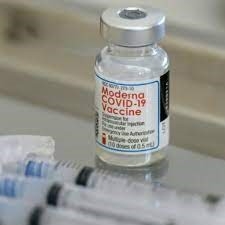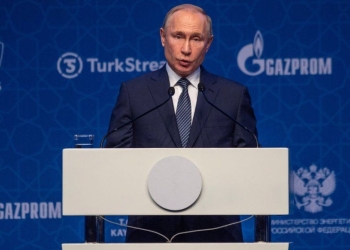Moderna said on Monday that their COVID-19 booster appears to provide protection against the omicron version of the virus, which is now spreading over the world at an alarming rate. Early Monday, the drug company announced that preliminary evidence from lab testing revealed that the version of its booster presently in use in the United States and other parts of the world resulted in enhanced antibody levels that were effective in neutralizing the virus. However, it was discovered that a twofold dose of the booster shot resulted in a far higher increase in those levels. In addition to being the latest indication that booster shots are a reliable method of protecting against the new variety, which has caused a dramatic increase in the number of reported cases since it was initially identified last month, the news also indicates that the vaccine is safe and effective. According to the medication business, their currently FDA-approved 50 microgram booster was found to raise neutralizing antibody levels against omicron by a factor of 37 when compared to baseline levels before the booster. Meanwhile, it was discovered that a booster dose of 100 micrograms resulted in an 83-fold increase in neutralizing antibody levels.
Pfizer Seeks US Approval For Covid Boosters For Ages 16-17
But it also discovered that giving the booster shot twice as much as the recommended dose — 100 micrograms rather than the allowed 50 micrograms — was substantially more effective. According to early data, a booster dose of 100 micrograms increased neutralizing antibody levels by “roughly 83-fold,” according to the company. Moderna said that the 100 microgram dose of its booster injection was “generally safe and well-tolerated,” yet “there was a trend toward slightly more frequent adverse events following the 100 [microgram] booster dose relative to the allowed 50 [microgram] dose,” according to the company. Without a booster, the company’s vaccine, known as mRNA-1273, was found to be significantly less effective against the fast-spreading omicron form, resulting in low levels of neutralizing antibodies being produced against the virus.
The data has not yet been subjected to a formal peer-review process. In addition, the business stated that it will continue to develop an omicron-specific booster candidate, which it expects to enter clinical trials in early 2020. The business stated that it made the choice to focus on its current Covid-19 booster rather than the variant-specific vaccination because of the rapid spread of omicron and its trust in its current offering. As a result of the power of the mRNA-1273 and the rapidity with which the Omicron variation is spreading, Moderna’s first line of defense against Omicron will be a booster dose of the mRNA-1273, according to the company’s statement.
























